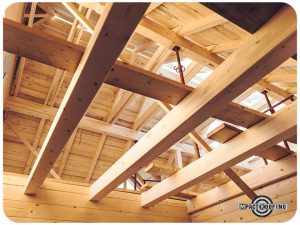What is a Final Walk-Through checklist
January 20, 2025 by Georges Benoliel
Go Back To Previous PageThe final walk-through is essential to the home-buying process just before closing the real estate transaction. This is the buyer’s chance to confirm that the property meets the agreed-upon condition and that any repairs or alterations promised by the seller have been made.
The final walk-through is key for buyers and sellers. Here’s a closer look at the details of the final walk-through and what buyers should be attentive to
Final Walk-Through Purpose
1. Verification of Condition
In the final walk-through, you will ensure that the property remains in the same condition as when the offer was submitted. You will also check that the seller has completed the agreed repairs and that no new issues have developed since the home inspection.
repairs and that no new issues have developed since the home inspection.
It is not an inspection. The goal is to ensure that the property is in the same condition when the purchase agreement was signed.
2. Check for Inclusions
A crucial aspect of the final walk-through is verifying that all items involved in the sale (such as appliances and fixtures) are present and functional.
Additionally, unless agreed otherwise, ensure that the property is clean and does not contain the seller’s items.
When to Do the Final Walk-Through?
The ideal time to perform a final walk-through is 24 to 48 hours before the closing date. This timeframe allows for addressing any last-minute issues without delaying the closing.
Here’s a checklist for your final walk-through detailing what to examine:
Final Walk-Through Checklist Items
- Inspection Repairs
- Belongings Moved In or Out
- Locks and Windows
- Appliances
- Mold
- Electricity and Outlets
- Backyard and Outdoors
- Pests
1. Inspection Repairs
During the final walk-through before closing, the first thing to check is whether any repairs are needed after the inspection. You should have engaged a licensed inspector to identify potential home issues. If any problems are found, you can ask the seller to address them before closing or request a credit to handle the repairs yourself.
Therefore, if the seller requires any last-minute repairs, ensure they have been completed during this final walk-through.
2. Belongings Moved In or Out
The final walk-through is a perfect chance to verify that the seller has removed all their belongings from the home. Typically, this happens 24 to 48 hours before closing, so the seller should have removed their belongings unless alternative arrangements were made.
Furthermore, if you need items delivered before you move in, now is the time to confirm that they are on-site.
3. Locks and Windows
Before moving in, make sure the home is safe and secure. Check all windows and door locks to ensure they function correctly. You will receive the keys only after signing the contracts, but they should be available to access the property.
4. Appliances
Inspecting the appliances and confirming that they are functioning correctly is essential. For instance, if the refrigerator is leaking or the oven isn’t operational, you should raise these concerns with the seller before closing, as you may need to ask for a credit for repairs.
Additionally, verify that the seller hasn’t removed any fixtures that should remain with the property upon transfer.
5. Mold
During the final walk-through before closing, pay attention to any signs of mold. The inspector should have notified you about any significant mold issues in the home. However, some problems might have been overlooked or could have developed since the inspection.
Therefore, it’s crucial to be vigilant for any indicators of unwanted fungus.
6. Electricity and Outlets
Next, you should check that the electricity is turned on and all the outlets work. If a light switch is broken or an outlet doesn’t work, this may indicate a more serious electrical problem, which should be brought to the seller’s attention before the closing.
7. Backyard and Outdoors
Inspect any outdoor spaces for overlooked items or other possible concerns. This includes verifying that railings, fences, and bushes are in good shape. Concentrating solely on the home’s interior and neglecting the exterior is common.
However, it’s crucial to inform the seller of any issues in the yard, such as abandoned patio furniture, damaged fences, or even a sinkhole.
8. Pests
Finally, you should watch for any evidence of pests, such as mice, termites, bedbugs, or flies. Decayed wood or rodent droppings are good signs that there may be a pest problem. They may have entered the home since the seller moved out, especially if they have been gone for a while.
So, it’s vital to double-check during the final walk-through before closing that you don’t have any unwanted roommates.
Who Attends a Final Walk-Through?
Typically, the buyer and the buyer’s agent conduct the final walk-through before closing, accompanied by any family members or others moving into the home. It’s uncommon for the seller or the seller’s agent to attend this walk-through, as their presence might pressure the buyer.
The buyer should be able to inspect for potential issues at their own pace, free from the seller’s influence. Nonetheless, any concerns identified during the walk-through can be raised with the seller or agent before the final closing.
When Does a Final Walk-Through Take Place?
The final walk-through will occur after the seller vacates, ideally just before the closing date. This is generally within 48 hours of signing the contracts. Conducting it closer to closing is preferable; unforeseen issues might arise if it occurs too early. For example, if a severe storm damages the roof just before closing, the buyer might be unaware of this development when signing the contract. Therefore, the final walk-through should occur right before closing, ensuring the buyer is fully informed about the property’s condition before contract signing.
How Long Does a Final Walk-Through Take?
The buyer decides how long it takes to inspect the property. If the inspection reveals minimal problems, it might only take 15-30 minutes for the buyer to double-check that no new issues have arisen. However, if the property is more significant or the inspection reveals serious repair problems, it could last several hours.
If new, serious problems are discovered during the final walk-through, the closing may be delayed until fixed. In that case, a second final walk-through may be necessary to remedy those issues.
What to Do if You Find Issues During the Final Walk-Through?
If you find new issues during the final walk-through before closing, notify the seller or their agent to find a solution. For minor problems, you might consider noting them for later resolution yourself, as bringing them up may jeopardize the deal.
However, for more significant issues, you can request additional repairs from the seller or ask for credit to handle them independently. Rescheduling the closing might be necessary to guarantee the repairs are completed before you sign the contract.
The conclusions are sent to the real estate attorneys if a credit is issued.
Final Walk-Through Bottom Line
The final walk-through is your last opportunity to confirm that the property meets your expectations before finalizing ownership. By conducting a detailed inspection and promptly resolving any issues, you can facilitate a smooth closing process and prevent future complications after moving in.
During this process, contact your real estate agent to ensure all concerns are thoroughly addressed.


